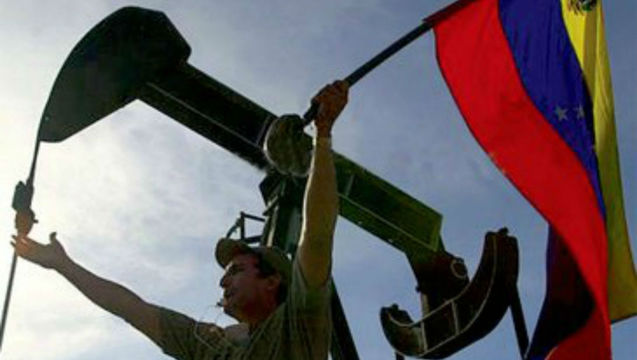Welcome to DU!
The truly grassroots left-of-center political community where regular people, not algorithms, drive the discussions and set the standards.
Join the community:
Create a free account
Support DU (and get rid of ads!):
Become a Star Member
Latest Breaking News
General Discussion
The DU Lounge
All Forums
Issue Forums
Culture Forums
Alliance Forums
Region Forums
Support Forums
Help & Search
Latin America
Related: About this forumAhead of Summit of the Americas, "Venezuela: What Everyone Needs to Know"
Ahead of Summit of the Americas, "Venezuela: What Everyone Needs to Know"
Thursday, April 9, 2015

.... read an excerpt from the forthcoming book by Tinker Salas below.
"Venezuela: What Everyone Needs to Know"
by Miguel Tinker Salas
Introduction
The first thing most people outside of Venezuela know about the country is its former president, Hugo Rafael Chávez Frías, one of the most charismatic and controversial leaders in the Western Hemisphere in the last one hundred years, whose death in 2013 traumatized the nation. The political discontent and the support of social movements that propelled Chávez to power in 1998 thrust Venezuela onto the international stage and recast relations with the United States, Latin America, and the rest of the world. Chávez represented the first of a wave of Latin American leftist leaders to assume office during the 1990s and the early 2000s in the wake of Washington’s policies that dramatically increased inequality in the region.
Venezuela’s previous disengagement from regional issues and its newfound notoriety under Chávez were directly related to the vast oil reserves that sustain not only its economy but remain a central component of its culture and its very identity. Oil has served as the nexus of Venezuelan-United States relations since the discovery of vast deposits in the 1920s began to shape economic and political relations, and forged a web of personal and social relations that has endured over time.
Except for its connection to oil, before 1998 Venezuela seldom registered in the North American popular imagination. With large oil reserves and the profits they generated, economic and political elites in Venezuela did little to promote the country outside its borders. Aside from an occasional article in National Geographic that usually highlighted the beauty of its natural environment, the purported exceptional character of its democracy, and the importance of its oil economy, most people would be hard-pressed to find an in-depth account on Venezuela in the mainstream media or popular press.
. . .
Immigration might have increased contact between the United States and Venezuela, as it did with other Latin American countries. However, unlike those countries, Venezuelans seldom emigrated in significant numbers to the United States or to other parts of the world. The 2000 United States Census Bureau placed the number of Venezuelans in the country at 91,507, a significant percentage of whom reside in South Florida. The 2010 census recorded that their numbers had increased to 215,023. Even accounting for an undocumented population or any recent unlisted increases, Venezuela has over thirty million people, suggesting that despite dramatic political changes, only a relatively small percentage of the population has actually emigrated to the United States. Nonetheless, Venezuelan elites and members of the upper middle class have regularly traveled to South Florida since the 1950s and have even begun to acquire property, establishing a strong presence in the Miami area. Drawn by the oil interests headquartered in the region, Venezuelans also commonly emigrated to Texas, especially Houston and Dallas. The oil industry and business interests motivated most contact between Venezuelans and North Americans.
More:
http://www.democracynow.org/blog/2015/4/9/ahead_of_summit_of_the_americas
InfoView thread info, including edit history
TrashPut this thread in your Trash Can (My DU » Trash Can)
BookmarkAdd this thread to your Bookmarks (My DU » Bookmarks)
0 replies, 382 views
ShareGet links to this post and/or share on social media
AlertAlert this post for a rule violation
PowersThere are no powers you can use on this post
EditCannot edit other people's posts
ReplyReply to this post
EditCannot edit other people's posts
Rec (2)
ReplyReply to this post